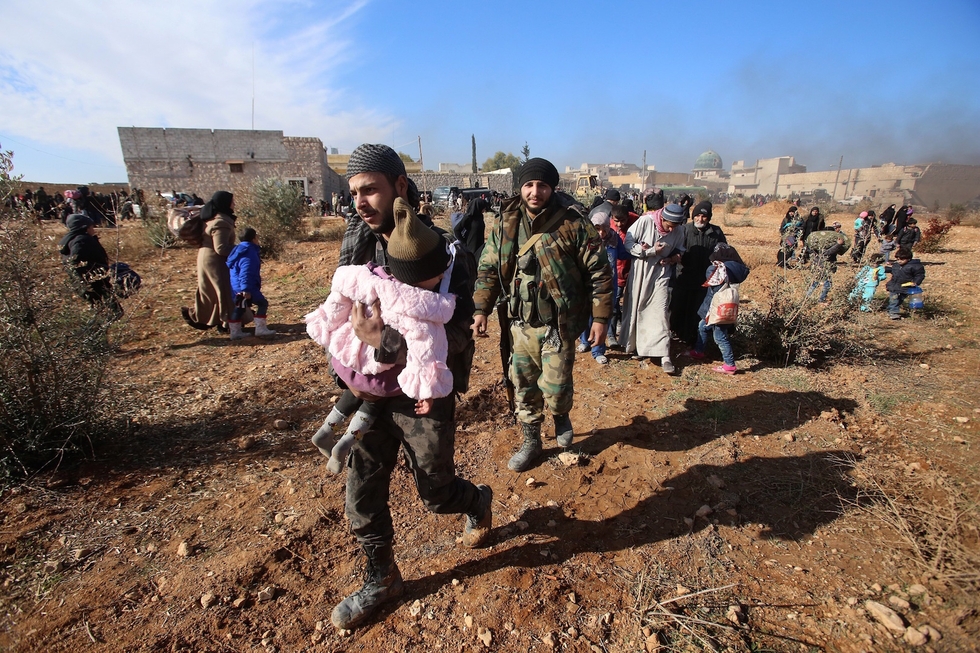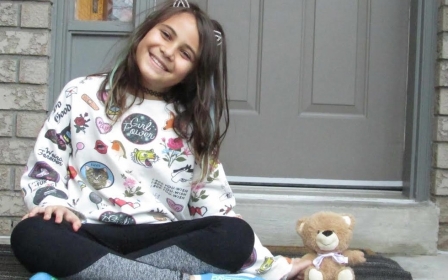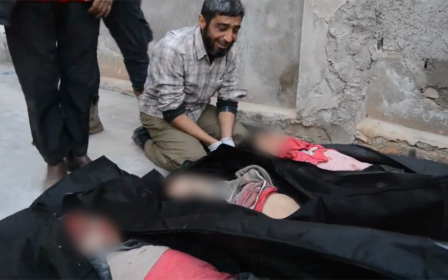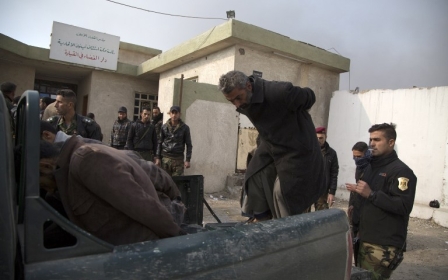New raids on rebel Aleppo ahead of talks to save city

Fresh air strikes pummelled the shrinking rebel enclave in Aleppo on Saturday ahead of parallel talks in France and Switzerland aimed at saving the Syrian city from "complete" destruction.
Foreign ministers from the Western and Arab backers of Syria's beleaguered opposition - including US Secretary of State John Kerry - were to discuss Aleppo's plight in Paris.
US and Russian officials meanwhile were to gather in Geneva in a bid to stop the city from "being absolutely, completely, destroyed," Kerry said.
Air strikes and government rocket fire battered the last remaining rebel districts early Saturday, according to the Syrian Observatory for Human Rights.
Opposition groups fired back with rockets, according to the British-based monitor, which did not have immediate details on casualties in the exchange of fire.
Aleppo back under air attack
Syria's government had resumed air strikes in east Aleppo since Friday, a day after ally Moscow announced a "pause" in the assault, an activist group said.
The resumption came hours after Russia's Foreign Minister Sergei Lavrov said on Thursday that Syria's army was halting its three-week operation to recapture east Aleppo in order to allow the evacuation of civilians.
In the hours after the announcement, the Syrian Observatory for Human Rights and an AFP correspondent in east Aleppo said air strikes had halted, through heavy artillery fire continued.
But on Friday afternoon, the Observatory said the government's air raids had resumed, targeting several of the few districts in the east still held by the rebels.
There were no immediate details of casualties.
Lavrov on Friday specified that military activities in the Aleppo region were halted on 8 December only for a specific period of time in order to allow civilians to leave the city.
"I never said that military activities have been stopped completely. I just said that they were halted yesterday for a specific period of time in order to provide civilians with an opportunity to leave," Lavrov said, according to TASS.
"After these humanitarian pauses, military operations will go on until eastern Aleppo is liberated from militants."
Syria's government has retaken at least 85 percent of east Aleppo, which fell to rebels in 2012, since beginning its operation on 15 November.
Meanwhile, the UN human rights office said on Friday that hundreds of men may have gone missing after fleeing eastern Aleppo into government-controlled parts of the city.
"While it's very difficult to establish the facts in such a fluid and dangerous situation, we have received very worrying allegations that hundreds of men have gone missing after crossing into government-controlled areas," rights office spokesman Rupert Colville told reporters in Geneva.
"Given the terrible record of arbitrary detention, torture and disappearances, we are of course deeply concerned."
He added that there were about 150 activists inside east Aleppo who feared being detained by government forces if they try to leave.
The UN General Assembly on Friday adopted by a strong majority a resolution demanding an immediate ceasefire in Syria and urgent deliveries of life-saving aid.
The measure, drafted by Canada, passed by a vote of 122 to 13 in the 193-nation assembly, with 36 abstentions. Russia has blocked all Security Council resolutions calling for the same.
MEE sources inside east Aleppo disputed that hostilities had ever stopped and said fighting was continuing inside the city. Footage has emerged of what was alleged to be a chemical weapons attack on Thursday:
Colville also warned that rebel forces were preventing civilians from fleeing besieged eastern Aleppo.
"Some of the civilians who are attempting to flee are reportedly being blocked by armed opposition groups," Colville said.
He said the civilians were being "used as pawns" by armed groups in the area.
Allegations that rebel forces in eastern Aleppo were preventing civilians from leaving the enclave have surfaced a number of times during the conflict - in July, after the negotiation of humanitarian corridors, governor of Aleppo province Mohammad Marwan Olabi claimed that the rebels were preventing civilians from leaving.
Sources close to Middle East Eye also confirmed that civilians were being prevented from leaving, with one activist suggesting that it would be seen as "surrender" if civilians were allowed to leave. He added, however, that medical evacuations were being allowed to leave and pointed out that government forces were blocking two crossings into west Aleppo.
'Wait and see'
The US had said it would "wait and see" if the the Russian statement on the cessation of hostilities was genuine.
"Our approach from the beginning has been to listen carefully to what the Russians say but scrutinise their actions," White House spokesman Josh Earnest said.
"So obviously that statement is an indication that something positive could happen, but we're going to have to wait and see whether those statements are reflected on the ground."
 The State Department, meanwhile, said that Lavrov had agreed with his US counterpart Kerry to "continue discussions about establishing a framework for a ceasefire that will allow the delivery of aid, as well as the safe departure of those who wish to leave the city".
The State Department, meanwhile, said that Lavrov had agreed with his US counterpart Kerry to "continue discussions about establishing a framework for a ceasefire that will allow the delivery of aid, as well as the safe departure of those who wish to leave the city".
The Russian claims came hours after the Red Cross said it had managed to evacuate almost 150 civilians, most of whom were disabled or in urgent need of care, from a hospital in the Old City of Aleppo where fighting had raged for days.
The evacuations were conducted with the help of members of the Syrian Arab Red Crescent.
Dar al-Safaa, originally a home for the elderly whose role expanded because of the crisis, had been accommodating patients with mental health needs or physical disabilities.
Three dozen other civilians, a number of them injured, had also sought refuge there.
"These patients and civilians had been trapped in the area for days because of heavy clashes nearby and as the front line kept drawing closer," said the Red Cross's head in Syria, Marianne Gasser, who is currently in Aleppo.
"Many of them cannot move and need special attention and care. It must have been terrifying for them. Our partners from the Syrian Arab Red Crescent had been trying to reach and evacuate them since Tuesday."
IS advance towards Palmyra
Meanwhile, the Islamic State (IS) group in Syria attacked the Syrian army near the city of Palmyra on Thursday, killing dozens of soldiers and advancing to within 4km of the city, the Observatory said.
The Syrian army, backed by Russian jets, recaptured Palmyra, the site of a Roman-era city and spectacular ruins, from IS in March after the group seized it in May 2015.
On Thursday, militants gained control over Qasr al-Halabat, southwest of Palmyra; Jabal Hayan, to the west; South Sawamea to the northeast and the Hawaisis region to the northwest.
At least 34 Syrian soldiers were killed, including at least eight officers, and there were also deaths on the IS side, the Observatory said.
IS has been on its back foot in both Syria and Iraq since late last year, losing much of its territory in both countries, as some of its most senior figures have been killed in air strikes.
New MEE newsletter: Jerusalem Dispatch
Sign up to get the latest insights and analysis on Israel-Palestine, alongside Turkey Unpacked and other MEE newsletters
Middle East Eye delivers independent and unrivalled coverage and analysis of the Middle East, North Africa and beyond. To learn more about republishing this content and the associated fees, please fill out this form. More about MEE can be found here.




